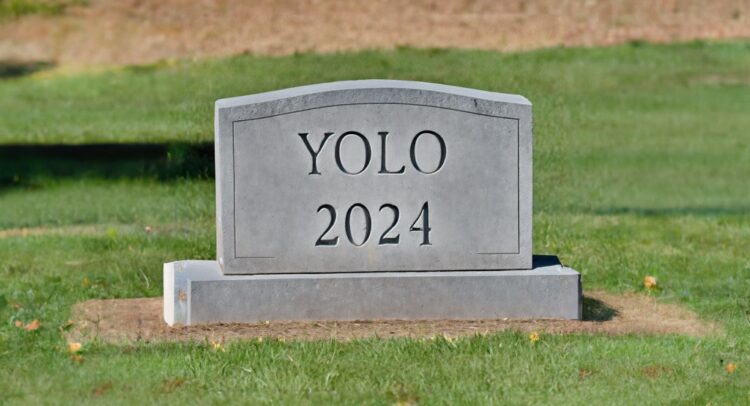The post-pandemic “You Only Live Once” (YOLO) consumption attitudes are suddenly in sharp decline. The implications of the new “return to normal” spending pace are creating economic and market uncertainty.
This is understandable because, after the pandemic, the YOLO economy emerged as consumers, fueled by pent-up wants and needs, unleashed their spending power. But a couple of years later, signs of a slowdown in consumer spending are becoming evident. The shift is partly a return to normal, but may also be a sign of economic instability.
The Post-Pandemic Frappuccino Years
The end of the COVID-19 pandemic left many with extra savings and a renewed sense of living for today. This translated into spending on everything from expensive handbags to new boats, and even daily Starbucks (NASDAQ:SBUX) frappuccino lattes at $8.00 per guzzle. In short, the post-pandemic era was characterized by the YOLO economy.
Now, things seem to be changing. The era of avocado toast and other high-markup items is giving way to simpler times. As the pandemic’s aftermath fades, so does YOLO spending.
Inflation, Savings, and Employment
Several factors may be contributing to the current spending decline. Inflation remains high, eroding the purchasing power of consumers.
Savings accumulated during the pandemic are running out, and the job market is showing signs of tightening, which leads to job insecurity. These factors are prompting consumers to cut back on discretionary spending.
Shifting Consumer Behavior
While consumers are still willing to spend on certain experiences, such as travel and entertainment, they are becoming more cautious about their wastefulness on everyday purchases. This shift in behavior is driving a move towards discount retailers and a focus on essential spending.
Investors may have noticed this shift during earnings season. Starbucks, which had experienced a few strong years, fell well below expectations. In contrast, Campbell Soup’s (NYSE:CPB) earnings have significantly improved and are now better than they were during the period of splurging.
The Economic Implications
Consumer spending is a critical driver of the U.S. economy, accounting for about 70% of GDP. A slowdown in spending could signal economic weakness and potential volatility for investors. The recent market reactions to unexpected economic data and the Federal Reserve’s upcoming policy meeting highlight the sensitivity of the market to consumer spending trends.
The coming months will be crucial for understanding longer-term economic trends. The May jobs report on Friday and the Federal Reserve’s policy meeting next week will offer key insights into the health of the labor market and the Fed’s perspective on inflation and interest rates.
Key Takeaway
As we move further away from the pandemic, the YOLO economy is giving way to a more cautious consumer. This shift in spending behavior has significant implications for the economy, signaling potential volatility and economic uncertainty. The coming months will be critical to understanding the full extent of these changes and their impact on the broader economy.
















